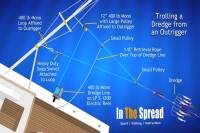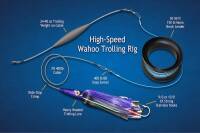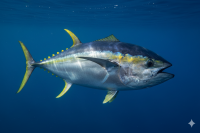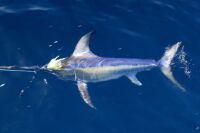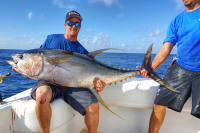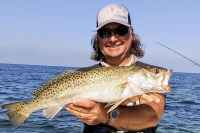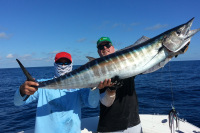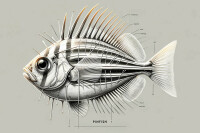Uncover the secrets behind exceptional fishing skills in this comprehensive guide. From deep sea adventures to inshore tactics, learn why some anglers consistently outperform others. Discover the blend of knowledge, experience, and adaptability that sets top fishermen apart. Whether you're a novice or seasoned pro, these insights will elevate your fishing game.
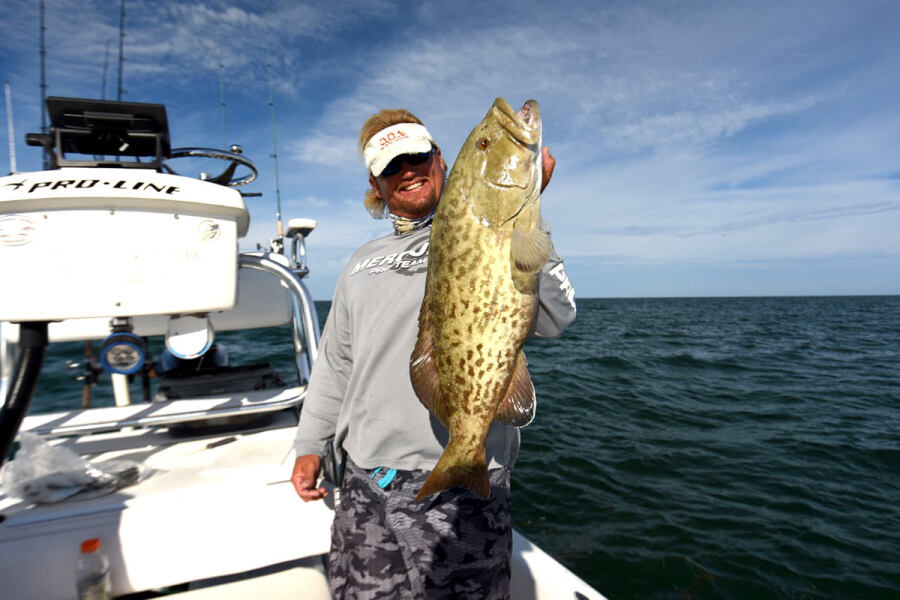
Why Are Some Fishermen Better Than Others
- Smart and open-minded approach to fishing
- Constant learning and adaptation
- Extensive practice and experience on the water
- Mastery of multiple fishing techniques
- Focus on specific fisheries and species
- Understanding of fish behavior and environmental factors
- Positive mindset and confidence
- Efficient use of time on the water
- Ability to read water conditions and adapt tactics
Fishing is both an art and a science, requiring a unique blend of skills, knowledge, and intuition. Whether you're into saltwater offshore fishing, nearshore fishing, inshore fishing, backcountry, deep sea fishing or freshwater lakes, rivers or ponds, there's always room for improvement. In this article, we'll explore why some fishermen consistently outperform others and reveal the secrets that set them apart in the world of saltwater fishing.
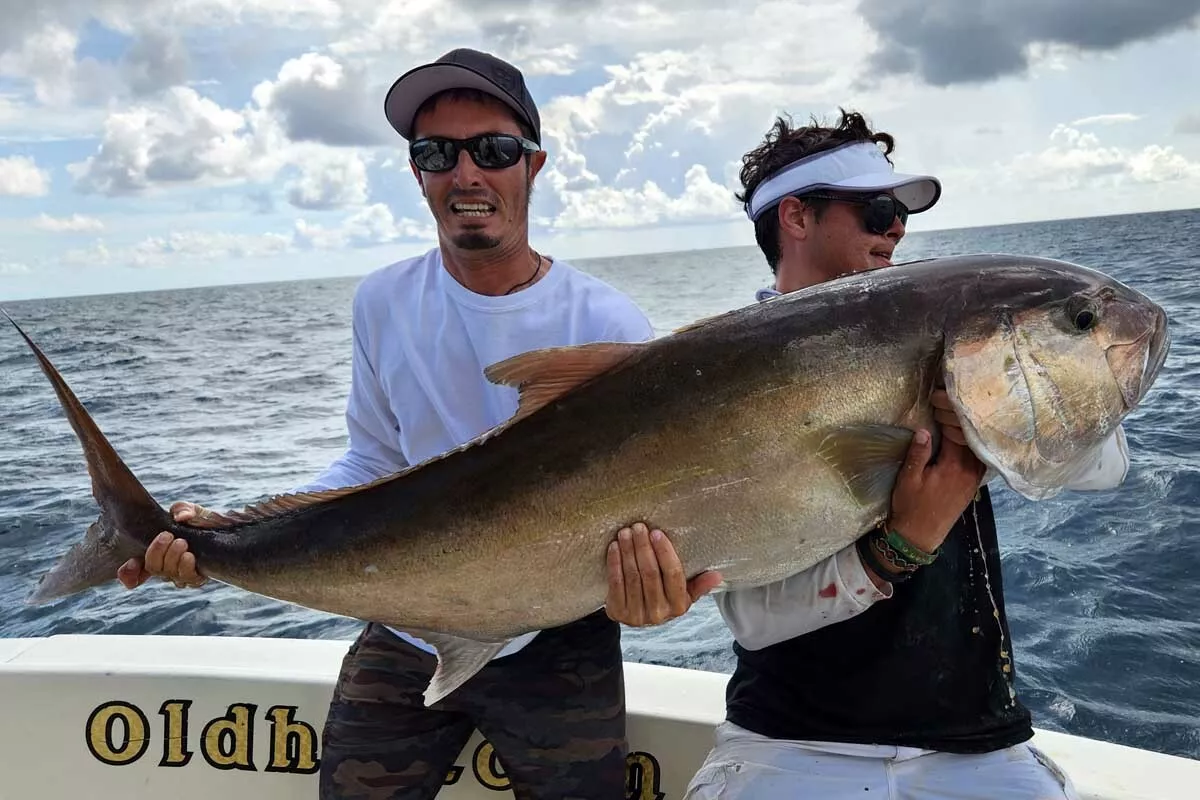
The Foundation of Fishing Excellence
At the core of every successful angler's journey is a combination of intelligence and open-mindedness. These traits lay the groundwork for continuous improvement and adaptation in the ever-changing world of fishing. Top-tier fishermen approach their craft with a calculated and analytical mindset. They don't just cast their lines and hope for the best; instead, they analyze patterns in fish behavior, study weather and water conditions, keep detailed logs of their fishing trips, and learn from both successes and failures. This smart approach allows them to make informed decisions and increase their chances of a successful catch, whether they're tuna fishing in the open ocean or targeting smaller species inshore.
Great anglers understand that the world of fishing is constantly evolving. They remain open to new techniques, technologies, and insights from fellow fishermen. This willingness to learn and adapt sets them apart from those who stubbornly stick to outdated methods. As the old saying goes, "The most successful fishermen are those who never stop learning."
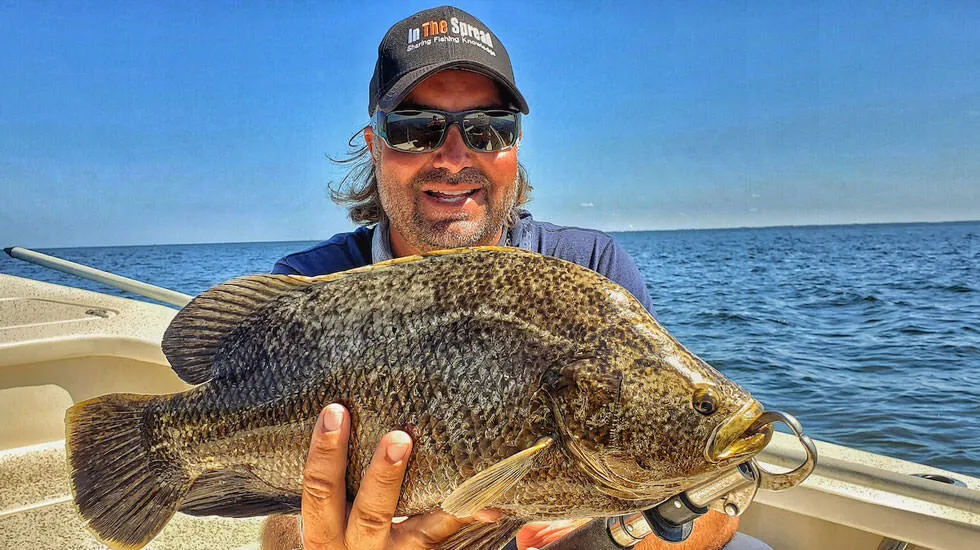
The Power of Practice and Experience
There's no substitute for time spent on the water. The best fishermen dedicate countless hours to honing their craft, perfecting their techniques, and gaining invaluable experience. Successful anglers don't just fish; they practice with purpose. They focus on improving casting accuracy, perfecting knot-tying techniques, mastering bait presentation, and fine-tuning trolling speeds for different species. This dedication to improvement translates directly to better results when it matters most.
Top-performing fishermen often have experience with various fishing styles and techniques, including conventional tackle, spinning tackle, fly fishing, deep water fishing, and inshore fishing. This versatility allows them to adapt to different fishing scenarios and target a wide range of species effectively. Whether they're marlin fishing in the deep blue or dorado fishing a weedline, these anglers have the skills to tackle any challenge.
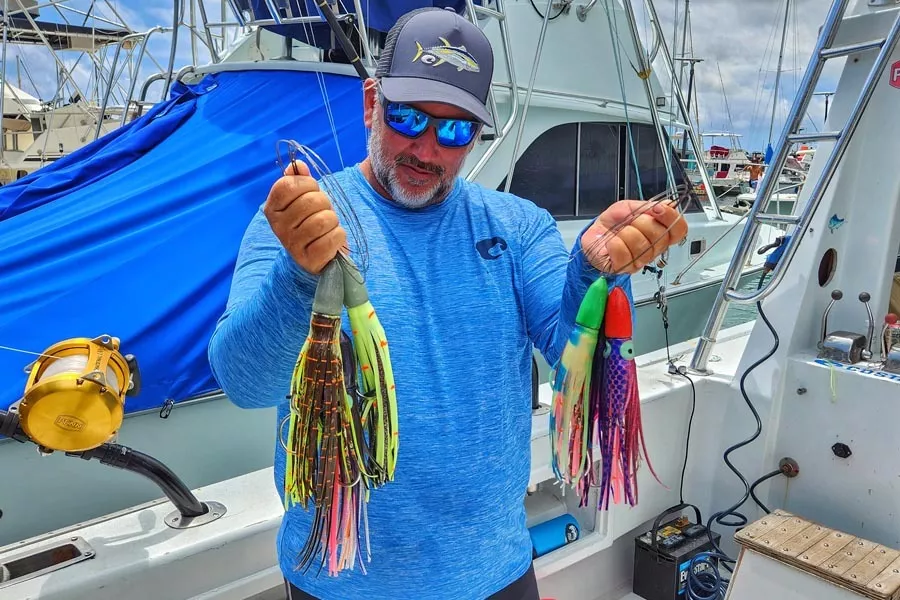
The Importance of Focus and Specialization
While versatility is valuable, the best fishermen also understand the importance of focused expertise. Rather than trying to master every type of fishing simultaneously, successful anglers often start by focusing on a specific fishery, a particular species, or a single fishing technique, before moving onto the next technique. This narrow focus allows them to gain deep insights and expertise before expanding their repertoire.
Instead of trying to fish every body of water, top anglers often concentrate on getting to know a specific area intimately. This approach allows them to understand local fish behavior patterns, identify productive fishing spots, and recognize subtle changes in conditions that affect fishing success. As one fishing proverb states, "Know your fishing grounds like the back of your hand."
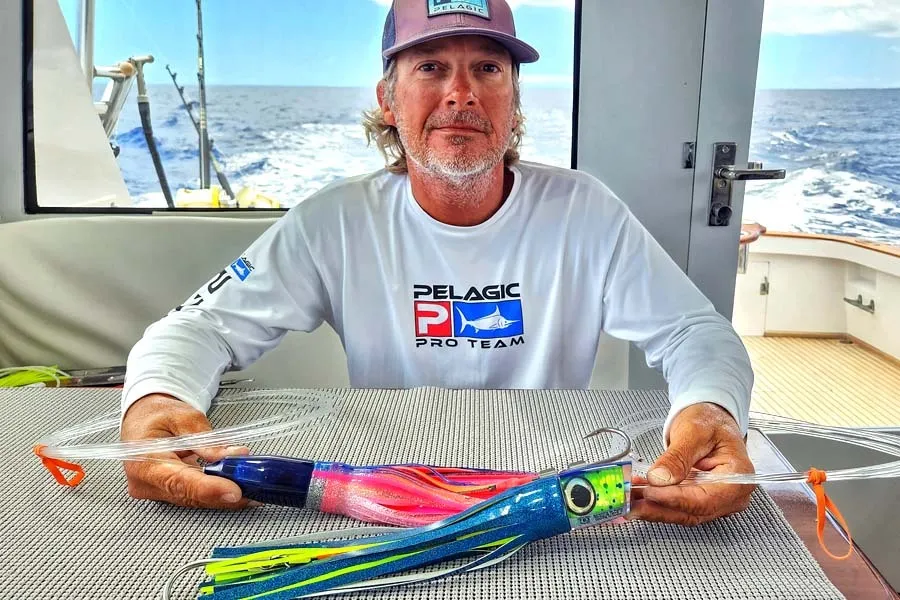
Adaptability: The Key to Consistent Success
Fish behavior and environmental conditions can change rapidly. The best fishermen are those who can quickly adapt their techniques and strategies to match these changes. Skilled anglers have an uncanny ability to "read" the water. They pay attention to water temperature, clarity, current patterns, and the presence of baitfish. This keen observation allows them to make informed decisions about where and how to fish.
When fish patterns change, top fishermen don't hesitate to switch up their approach. They might transition from surface lures to deep-diving plugs, live bait to artificial lures, or trolling to jigging. This flexibility ensures they're always presenting their bait in the most effective manner, whether they're wahoo fishing in the open ocean or targeting species closer to shore.
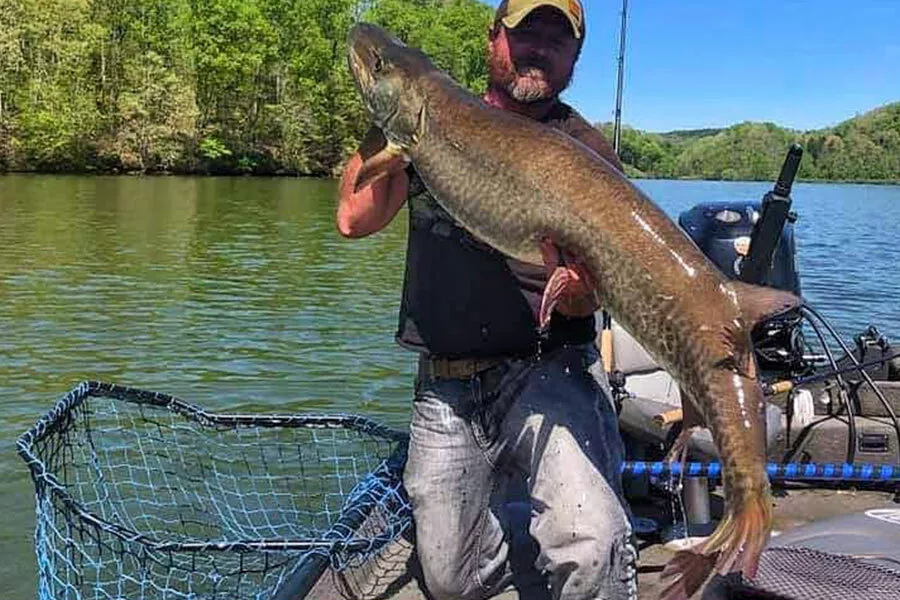
The Mindset of a Successful Fisherman
Beyond skills and knowledge, the mental approach to fishing plays a crucial role in separating the good from the great. Successful anglers approach each fishing trip with confidence and a positive attitude. They understand that fishing conditions can change at any moment, every cast has the potential to land a trophy fish, and persistence often pays off in the long run. This mindset helps them stay focused and motivated, even during slow periods.
Top fishermen approach their craft with a disciplined mindset. They analyze each fishing trip, identify areas for improvement, make calculated changes to their approach, and test new techniques systematically. This analytical approach accelerates their learning curve and leads to consistent improvement over time. Whether they're perfecting their offshore fishing techniques or honing their inshore fishing skills, these anglers are always striving to get better.
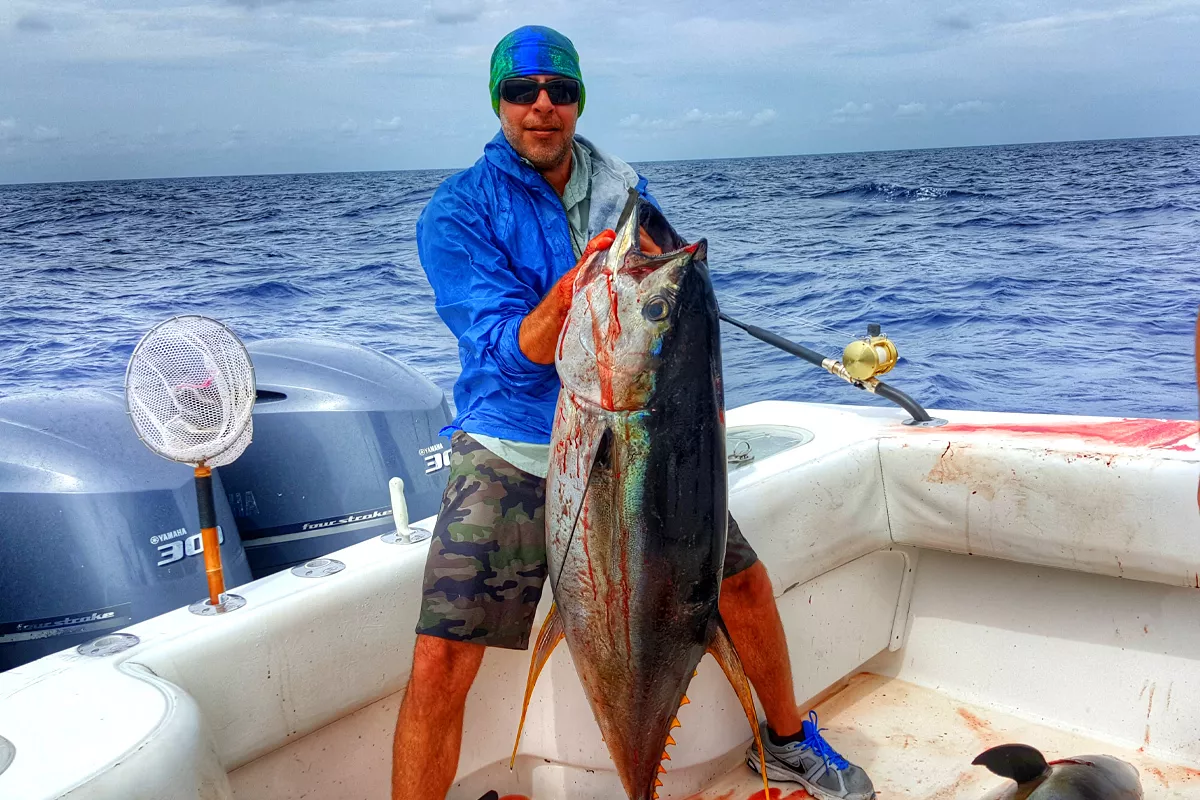
Leveraging Technology and Resources
In today's digital age, successful fishermen take advantage of various technologies and resources to enhance their skills and knowledge. Modern anglers often incorporate technology into their fishing arsenal, including fish finders, GPS systems, weather apps, and underwater cameras. These tools provide valuable insights that can increase fishing success rates, especially when it comes to deep sea fishing or locating elusive species.
Top anglers understand the value of learning from experts. They often attend fishing seminars, watch instructional videos like the ones we stream here at In The Spread, read fishing magazines and books, and participate in podcast style duscussions. These resources provide a wealth of knowledge that can significantly improve an angler's skills. As one piece of fishing wisdom suggests, "The wise fisherman learns from those who have mastered the craft."
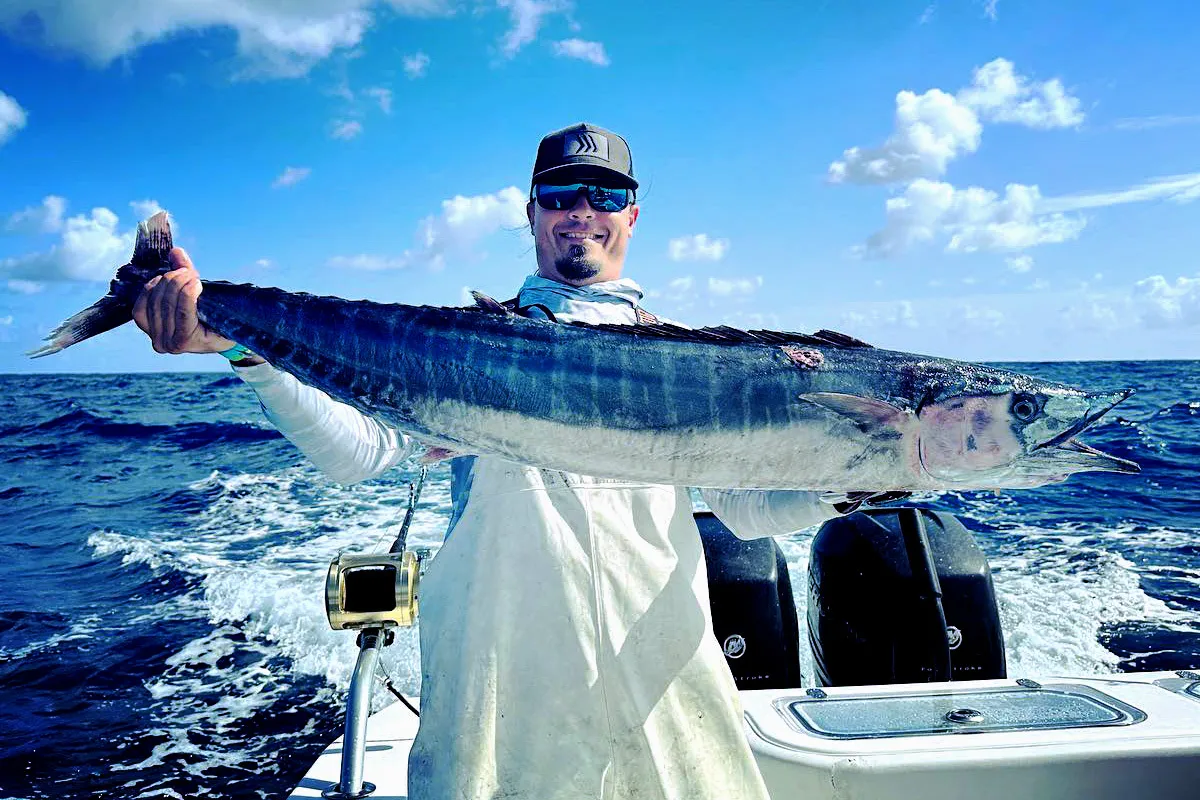
The Path to Fishing Excellence Starts With Knowledge
Becoming a successful fisherman is a journey that requires dedication, passion, and a willingness to learn. By combining intelligence, open-mindedness, focused practice, and adaptability, anglers can significantly improve their skills and catch rates. Remember, the key to success lies in constant learning and adaptation, focused practice and specialization, understanding fish behavior and environmental factors, maintaining a positive and confident mindset, and leveraging technology and expert resources.
Whether you're interested in trolling for marlin, offshore fishing for tuna, or inshore fishing for smaller gamefish, applying these principles will set you on the path to becoming a truly skilled angler. So, grab your gear, head out on the water, and start putting these insights into practice. The more time you spend fishing with purpose, the better you'll become. Happy fishing!
How long does it take to become a skilled fisherman?
The time it takes to become skilled varies, but consistent practice and learning can lead to significant improvements within a few seasons of dedicated fishing. Many anglers find that their skills improve dramatically after spending several years honing their craft, but the learning process is ongoing throughout a fisherman's career.
Is expensive gear necessary to become a great fisherman?
While quality gear can help, skill and knowledge are far more important. Many successful anglers start with modest equipment and upgrade as they improve. The most crucial factor is understanding how to use your gear effectively, regardless of its price point. Some of the best fishermen can outperform others using basic equipment due to their superior knowledge and technique.
What's the best way to learn new fishing techniques?
Combining hands-on practice with learning from experienced anglers, watching quality instructional videos, and reading fishing literature is often the most effective approach. Joining local fishing clubs, participating in tournaments, and hiring guides can also provide valuable learning opportunities. The key is to apply what you learn on the water and reflect on your experiences to continue improving.
How important is local knowledge in fishing success?
Local knowledge is crucial. Understanding the specific patterns and behaviors of fish in your area can greatly increase your chances of success. This includes knowing the best spots, understanding how weather and seasons affect fish behavior, and being familiar with local regulations. Developing this knowledge takes time and often involves building relationships with other local anglers.
Can technology replace experience in fishing?
While technology can be helpful, it can't replace the intuition and skills developed through experience. The best anglers use technology to complement their existing knowledge and skills. Tools like fish finders and GPS can enhance your fishing, but knowing how to interpret and act on the information they provide comes from experience. A balance of technological aids and traditional fishing skills often yields the best results.

